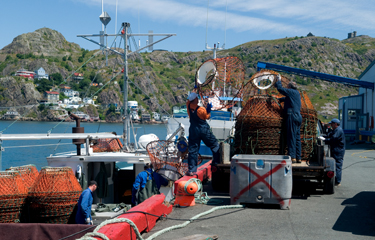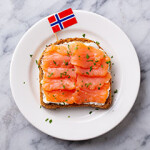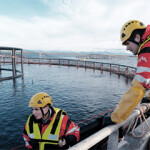Newfoundland panel sets lowest snow crab price in decade, crabbers vow not to fish

The Standard Fish Price Setting Panel in Newfoundland and Labrador, Canada, has decided on the lower of two price options for snow crab for the 2023 fishing season. In response, fishermen in the region have vowed to not fish at the “unsustainable” price.
On Thursday, 6 April, the panel selected the Association of Seafood Producers (ASP) offer of CAD 2.20 (USD 1.63, EUR 1.49), over the Fish Food and Allied Workers Union (FFAW) offer of CAD 3.10 (USD 2.29, EUR 2.10). That is the lowest initial price since 2013, when the minimum price for the season was CAD 1.83 (USD 1.35, EUR 1.24).
FFAW lambasted the decision, and said most of its fishermen have decided not to fish.
“Committees throughout the province have made the unanimous decision to not fish at the unsustainable price and will review this position in the coming weeks,” an FFAW release states.
The prices put the industry in “the most precarious situation it’s ever been in," said FFAW President Greg Pretty, who was elected to his post in January 2023.
“The final offer selection process has completely lost its way when bottom-of-the-barrel prices are being selected without absolutely any merit,” Pretty said. “People can’t fish at [CAD] 2.20. They can’t hire crew, they can’t generate enough to pay business loans, insurance, purchase fuel or bait, and still break even at the end of the day. When it comes to dollars and cents, this catastrophe rivals the cod moratorium. It’s absolutely remarkable that the largest crab fishery in the world can induce poverty right across our province in the blink of an eye.”
The price comes as the fishery is facing quota increases and a robust supply of snow crab. The Canada Department of Fisheries and Oceans announced on 30 March the province's snow crab quota would increase 8.4 percent from 2022 to 54,727 metric tons.
The FFAW and the ASP had initially agreed to more-cordial negotiations after a tumultuous 2022 that led to fishermen protests and calls for changes in management. However, negotiations failed in late March, forcing the price-setting panel to make the decision.
The FFAW presented the panel a price offer of CAD 3.53 (USD 2.62, EUR 2.41) and the ASP offered up a price of CAD 2.15 (USD 1.59, EUR 1.46). Rejecting both offers, the panel sent the two groups back to the negotiating table, asking for a new price from both.
The fact that the ASP’s offer only increased by CAD 0.05 (USD 0.037, EUR 0.033) is a source of frustration for the FFAW, Pretty said.
“The negotiating committee felt it was important to show good-faith bargaining with the second price offer, so the fact that ASP’s second offer hardly budged, while our committee made meaningful movement, is a second kick in the gut to harvesters who put their faith, and their future, into the hands of this process,” Pretty said.
FFAW has called for political action to reform the price-setting process, arguing the process is resulting in “economic crisis” for the province.
“We’re sending off an urgent request to meet with Premier Furey because this is a provincial problem that’s going to need some real solutions,” Pretty said. “Our union is also solidifying plans for further political action, because this decision today just highlights how broken our system is. Companies will survive this year and in a few years, this will be nothing but a distant memory. But hundreds of enterprises will not survive this year. There will be bankruptcies and there will be thousands of people out of work.”
FFAW has asked processors not to import snow crab from outside the province until the dispute is resolved. In a statement issued before the final pricing decision, Pretty said he was concerned FFAW workers might face harassment or violence if the problems In Newfoundland and Labrador escalate.
“Fishing industry workers have serious concerns they could be in physical danger going to work if companies start bringing crab in from other provinces without ensuring a smooth and peaceful fishery in our own province,” Pretty said. “Non-union sanctioned threats of violence have already been a concern this year, and this cannot be tolerated or endorsed in any manner. Bringing crab into the province will throw fuel onto an already volatile situation.”
Photo courtesy of Threerocksimages/Shutterstock






Share